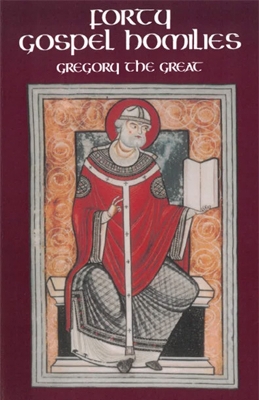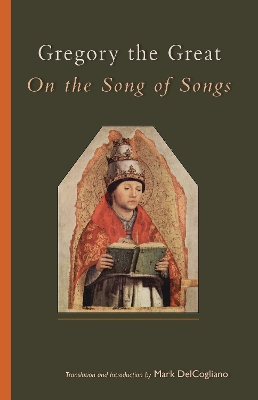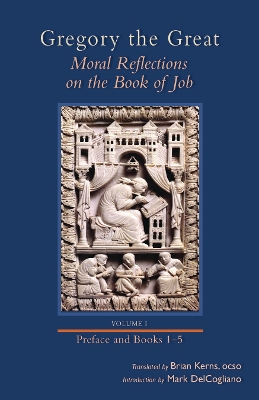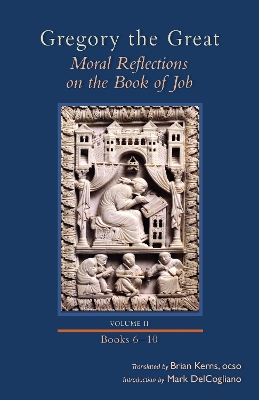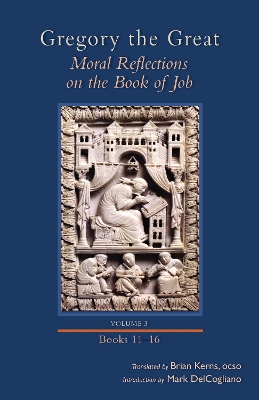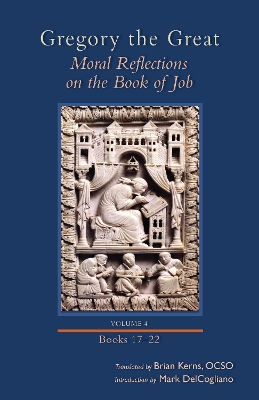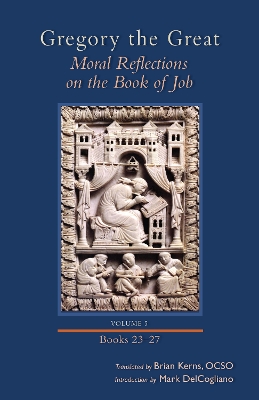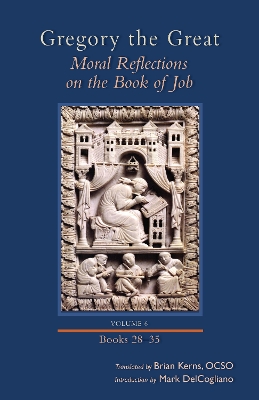Cistercian Studies
7 primary works • 8 total works
Book 123
At the dividing line between Antiquity and the Middle Ages, scholar-diplomat-pastor-writer-pope Gregory the Great drew on his profound knowledge of Scripture and his personal experience to preach the Gospel. These forty homilies show the practical concerns Gregory faced as well as the theological expectations he had of his flock.
Book 244
Book 249
Gregory the Great was pope from 590 to 604, a time of great turmoil in Italy and in the western Roman Empire generally because of the barbarian invasions. Gregory's experience as prefect of the city of Rome and as apocrisarius of Pope Pelagius fitted him admirably for the new challenges of the papacy. The Moral Reflections on the Book of Job were first given to the monks who accompanied Gregory to the embassy in Constantinople. This first volume of the work contains books 1-5, accompanied by an introduction by Mark DelCogliano.
Book 257
This second volume, containing books 6-10, provides commentary on Job 5:3-12:5. Here, Gregory sets forth "a mystical interpretation" of these chapters, showing the way that Scripture foretells Christ's incarnation and that Job himself manifests Jesus' passion.
Book 258
This third volume, containing books 11 through 16, provides commentary on six chapters of Job, from 12:6 through 24:20. Whereas volume 1 concentrated largely on the moral reading of the first four chapters of Job and volume 2 on the mystical interpretation of the next seven, volume 3 offers a rapid overview of nearly thirteen chapters in their original oral format, including a brief comment at the beginning of each of the six books to explain its contents.
Book 259
Gregory the Great was pope from 590 to 604, a time of great turmoil in Italy and in the western Roman Empire generally because of the barbarian invasions. Gregory's experience as prefect of the city of Rome and as apocrisarius of Pope Pelagius fitted him admirably for the new challenges of the papacy. The Moral Reflections on the Book of Job were first given to the monks who accompanied Gregory to the embassy in Constantinople.
This fourth volume, containing books 17 through 22, provides commentary on twelve chapters of Job, from 24:21 through 31:40.
Book 260
Gregory the Great was pope from 590 to 604, a time of great turmoil in Italy and in the western Roman Empire generally because of the barbarian invasions. Gregory's experience as prefect of the city of Rome and as apocrisarius of Pope Pelagius fitted him admirably for the new challenges of the papacy. The Moral Reflections on the Book of Job were first given to the monks who accompanied Gregory to the embassy in Constantinople.
This fifth volume, containing books 23 through 27, provides commentary on six chapters of Job, from 32:1 through 37:24. The present volume covers the chapters of Job devoted to Elihu, the young man who derides the three friends who couldn't find an answer to Job. For the most part Gregory confines himself, with a few exceptions, to the allegorical moral exegesis, making Elihu a symbol of the arrogant person (sometimes the heretic, and sometimes the unworthy member of the church), and Job a type either of the church herself or of the holy preachers of sound doctrine.
Gregory the Great was pope from 590 to 604, a time of great turmoil in Italy and in the western Roman Empire generally because of the barbarian invasions. Gregory’s experience as prefect of the city of Rome and as apocrisarius of Pope Pelagius fitted him admirably for the new challenges of the papacy. The Moral Reflections on the Book of Job were first given to the monks who accompanied Gregory to the embassy in Constantinople. This sixth volume, containing books 28 through 35, provides commentary on five chapters of Job, from 38:1 through 42:17. The present volume contains the Lord’s appearing to Job out of the whirlwind, the Lord’s two lengthy speeches to Job and Job’s responses, and, finally, the Lord’s rebuke to Job’s friends and restoration of Job’s fortunes. Finally, Gregory speaks of his intention in writing this long work and requests that his readers grant him their prayers and tears. Includes comprehensive indexes for volumes 1-6.
